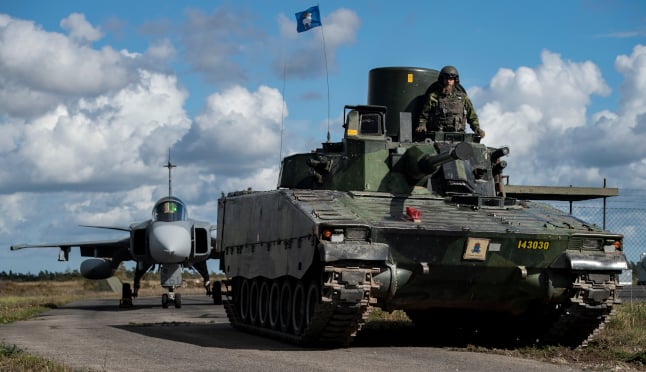The so-called “high readiness action” means the Swedish army, navy and air force are currently more visible in the southeastern and southern Baltic Sea and on the island of Gotland.
No details have been disclosed about the number of troops involved in the action.
Sweden is “sending a signal both to our Western partners and to the Russian side that we are prepared to defend Sweden's sovereignty,” Hultqvist told news agency TT.

Ground troops on Gotland. Photo: Bezhav Mahmoud/Försvarsmakten/TT
“There is currently extensive military activity in the Baltic Sea, conducted by Russian as well as Western players, on a scale the likes of which have not been seen since the Cold War,” the Swedish Armed Forces' Commander of Joint Operations, Jan Thörnqvist, said in a statement.
“The exercise activities are more complex and have arisen more rapidly than before. In addition, the coronavirus pandemic has caused global anxiety and uncertainty. Over all, the situation is more unstable and more difficult to predict,” Thörnqvist said.

A Visby-class corvette and two Jas Gripen jets in the air. Photo: Antonia Sehlstedt/Försvarsmakten/TT
Hultqvist said Sweden was also monitoring developments in Belarus “very closely”.
Non-Nato member Sweden, which has not been to war in two centuries and which slashed military spending at the end of the Cold War, reopened a garrison on Gotland in January 2018 amid concerns about Russian intentions in Europe and the Baltic.



 Please whitelist us to continue reading.
Please whitelist us to continue reading.
Member comments